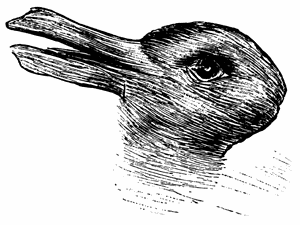Be More Productive
Some expert tips on how to get more shit done during your day and maintain a decent work/life balance.

Here's some good news: procrastination may not be such a bad thing. Turns out, putting off your to-do list can actually help you accomplish your goals in the long run. "You're actually doing the smartest and most productive thing in the world if you waste time," said psychologist Maria Konnikova at a creativity workshop during Adobe's 99U conference last month. Drawing insights from her book The Confidence Game, she praised the virtues of taking mind-clearing breaks before brainstorming or diving into a new task.

Frank Lloyd Wright's early sketch of Fallingwater.

Frank Lloyd Wright's early sketch of Fallingwater.

Frank Lloyd Wright's early sketch of Fallingwater.
Of course, most people associate procrastination with that of lazy or stressed out people—frazzled college students pulling all-nighters to finish a paper. But in reality, it's often a trait of over-achievers. Some of history's most well-respected minds were proud procrastinators. Such out-of-the-box thinkers as Steve Jobs, Martin Luther King, Aaron Sorkin and Frank Lloyd Wright. In fact, Wright said his iconic architectural masterpiece, Fallingwater, was sketched a mere 30 minutes before the client was due to arrive at his office.
More and more these days, the science is pointing towards to the benefit of postponing your task, if only to allow yourself the time to ponder. "Our first ideas, after all, are usually our most conventional," explains organizational psychologist Adam Grant. In a recent New York Times editorial, he said we have a better memory for incomplete tasks than for complete ones. "When we finish a project, we file it away. But when it's in limbo, it stays active in our minds."

The rabbit-duck optical illusion.

The rabbit-duck optical illusion.

The rabbit-duck optical illusion.
So if you want the best idea or the most creative approach, give it some time to develop before getting down to work. Konnikova says the purpose of procrastinating is to ensure you have the right perspective before you begin. To illustrate the point, she showed several optical illusions such as the famous rabbit-duck image from 1892. "The way that our vision works is a really good metaphor for the way our brain processes things," she explained. "If you'd jumped into your assignment right away, you might have done an entire paper on the duck rather than the duck-rabbit."
Now it should be said that procrastination can, of course, go too far. If you simply wait until the very last minute to put any thought or energy into your task, you'll simply rush to implement the easiest idea instead of working out the best possible solution. To curb that kind of destructive procrastination, Grant offered some useful guidance. "First, imagine yourself failing spectacularly, and the ensuing frenzy of anxiety may jump-start your engine," he said. "Second, lower your standards for what counts as progress, and you will be less paralyzed by perfectionism." Then all you have to do is unplug from your devices and let your mind wander.
Leonardo da Vinci worked on the Mona Lisa for four years then set it aside for a few years before finally taking another three years to finish it.